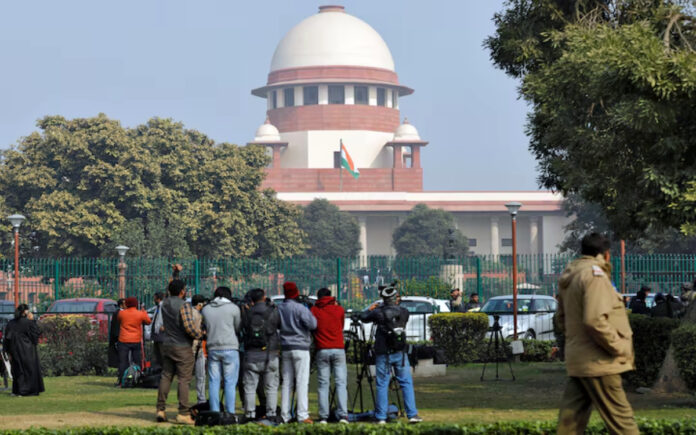New Delhi: India recently implemented sweeping changes to its outdated criminal justice system, prompting mixed reactions from legal experts and activists. Critics fear these reforms may increase police authority over citizens and worsen the backlog of cases in an already strained judicial system. These reforms replace archaic laws dating back to the 19th century (the Indian Penal Code of 1860, the 1973 Code of Criminal Procedure, and the Indian Evidence Act of 1872), introducing significant amendments aimed at expediting trials and enhancing accountability.
Here’s a breakdown of the key provisions:
- Timely Court Rulings: Courts are now mandated to deliver verdicts within 45 days of concluding arguments, a departure from the previous norm of indefinite delays that often prolonged trials. Similarly, charges in a trial must be framed within 60 days of the first hearing.
- Swift Investigations: Police investigations into offences against women and children must be completed within two months, ensuring faster justice for vulnerable groups.
- Harsher Penalties: The new laws introduce the death penalty for severe crimes such as gang rape of minors and mob lynching, reflecting a tougher stance on heinous offences.
- Sedition Revisions: While the government claims to have abolished sedition clauses, critics argue that the new provision penalizing acts endangering India’s sovereignty and unity resembles the contentious sedition law.
- Trials in Absentia: In cases where the accused cannot be located, trials in absentia are now permissible. Judges can adjudicate such cases, and penalties are enforced once the accused is apprehended.
- Enhanced Accountability: Police raids and seizures must be videotaped, and forensic experts are required to visit crime scenes for serious offences, bolstering transparency and integrity in investigations.
- Digital Evidence: Recognizing the importance of digital records, the new laws accept emails, server logs, messages, location data, and voicemails as admissible evidence in court proceedings.
- Alternative Sentencing: For lesser offences like defamation, the reforms introduce community service as an alternative to imprisonment, promoting rehabilitation over incarceration.
Also Read | India and Thailand Deepen Military Collaboration with MAITREE 2024 in Tak Province
These reforms aim to modernize India’s criminal justice system, prioritizing efficiency and fairness. However, they remain contentious, with ongoing debates regarding their potential impact on civil liberties and due process.
Also Read | Xi Jinping Urges Global Powers to Facilitate Russia-Ukraine Dialogue



